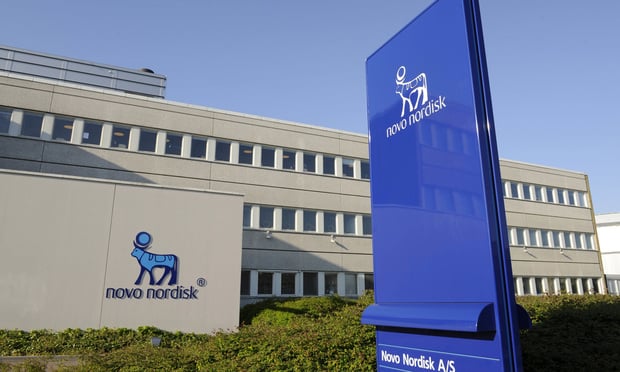 McKesson headquarters in San Francisco. Photo Credit: David Tran Photo/Shutterstock.com
McKesson headquarters in San Francisco. Photo Credit: David Tran Photo/Shutterstock.comPharmaceutical company McKesson Corp. and two of its subsidiaries engaged in a scheme to skim excess oncology drugs from prepackaged vials, a health care provider has alleged in a new complaint filed in Brooklyn federal court.
Omni Healthcare, a Florida-based health care provider, filed the suit on behalf of the federal government, 30 state governments, the city governments of Chicago and New York City and the District of Columbia.
Related: Texas' Big Pharma troubles
Omni seeks a $10,000 civil penalty for each violation of the False Claims Act, as well as treble damages. The suit also names the Oncology Therapeutics Network, which McKesson acquired in 2007; and US Oncology, which McKesson acquired in 2010, as defendants.
Omni's allegations, filed in the U.S. District Court for the Eastern District of New York, are contained in a second amended complaint for a lawsuit originally filed in 2012.
The federal government opted not to pursue the aspects of the case contained in the second amended complaint and other aspects of the case remain under seal, said George Carpinello of Boies Schiller Flexner, who represents Omni.
According to the new complaint, the United States Pharmacopeial Convention requires that the single-use vials of pharmaceutical drugs be slightly overfilled to permit withdrawal; many manufacturers overfill the vials, which are subject to approval by the U.S. Food and Drug Administration, to ensure that patients receive proper dosages.
Additionally, the U.S. Centers for Medicare and Medicaid Services has made it a rule not to reimburse medical providers for overfill.
But from roughly 2001 to 2010, Omni alleged, the defendants extracted the overfill from oncology drugs, repacked it and distributed it to medical providers who then applied with the government for reimbursement.
Omni claims that it spent $3 million on oncology drugs between 2007 and 2010.
Omni alleged that one of its principals personally witnessed the scheme at work in 2007 at an Oncology Therapeutics Network drug facility in Texas, where workers pooled overfill oncology drugs and repackaged them, sometimes with fake product codes and expiration dates. The physicians would use the overfill and then pin the bill on the government.
“They set up a scheme to give medical providers an opportunity to charge Medicare and Medicaid for free drugs, which is illegal,” Carpinello said.
In addition to making profit from essentially free drugs, Omni alleged, the defendant put patient safety at risk by repackaging the oncology drugs in non-sterile syringes and in unclean facilities. Omni also alleged that, since the repackaged overfill was not computed in the average sale price for the drug, the government reimbursed medical providers at artificially inflated prices.
A spokesperson from San Francisco-based McKesson did not respond to a request for comment. The company told the trade publication Modern Healthcare, which first reported the new filing, that it is reviewing the complaint.
In addition to Carpinello, Omni's legal team includes Boies Schiller attorneys Courtney Rockett, Lisa Sokolowski and Teresa Monroe.
The new complaint comes at a time of heightened scrutiny of pharmaceutical manufacturers and distributors over pricing issues and what role Big Pharma may have played in contributing to the opioid addiction epidemic that President Donald Trump has termed a national public health emergency.
As Omni noted in the complaint, its new filing comes several months after AmerisourceBergen Corp. pleaded guilty at the Eastern District courthouse in Brooklyn to taking part in an overfill resale scheme similar to that alleged in the complaint against McKesson.
According to a release from the U.S. Department of Justice, AmerisourceBergen agreed to pay a total of $260 million in criminal penalties and forfeiture and has also built up a $625 million reserve to settle civil claims, according to a filing with the U.S. Securities and Exchange Commission.
In September, New York Attorney General Eric Schneiderman announced that a coalition of 41 state attorneys general served McKesson and competitors AmerisourceBergen and Cardinal Health—which together manage 90 percent of the opioid distribution in the United States—with subpoenas for information about their distribution practices.
© 2025 ALM Global, LLC, All Rights Reserved. Request academic re-use from www.copyright.com. All other uses, submit a request to asset-and-logo-licensing@alm.com. For more information visit Asset & Logo Licensing.







